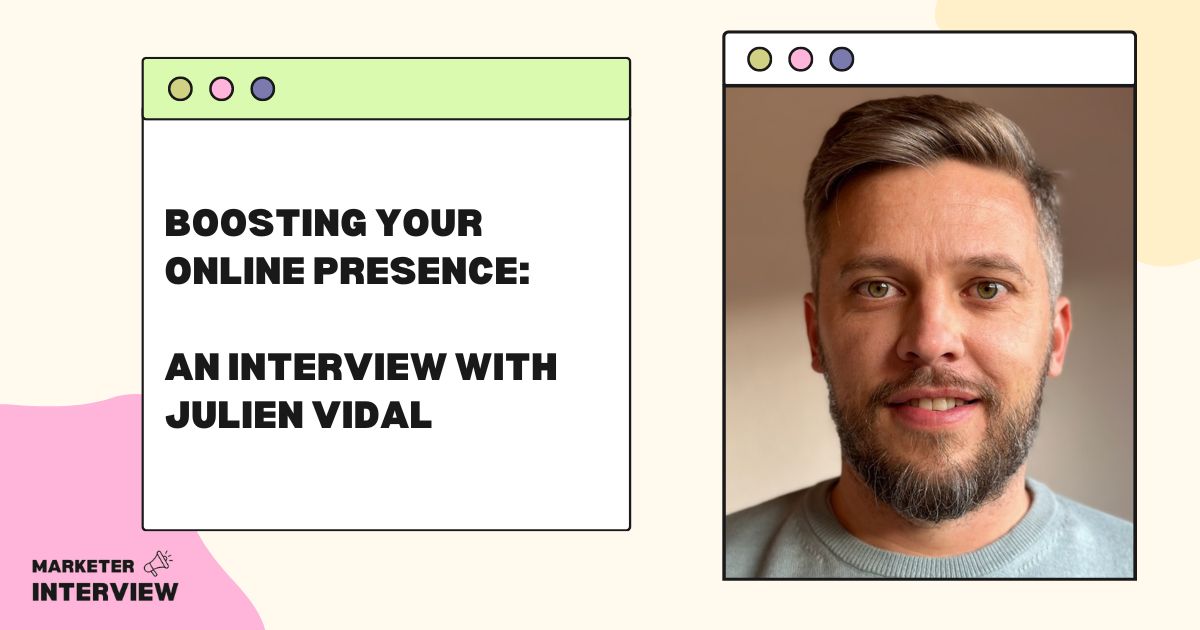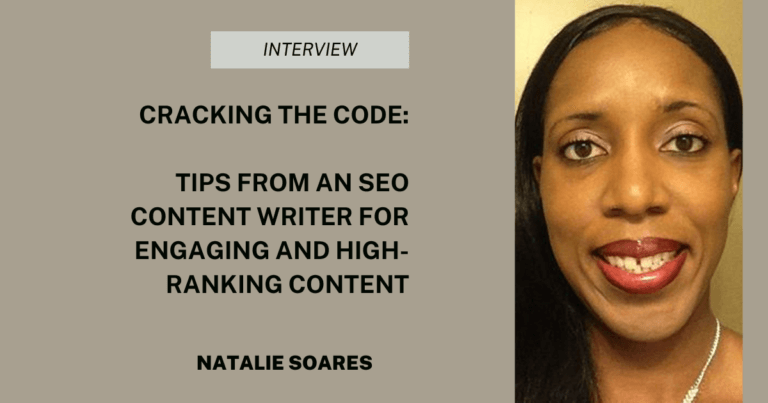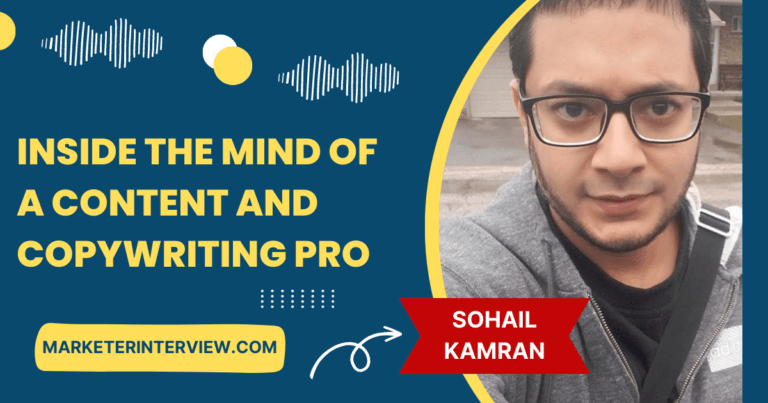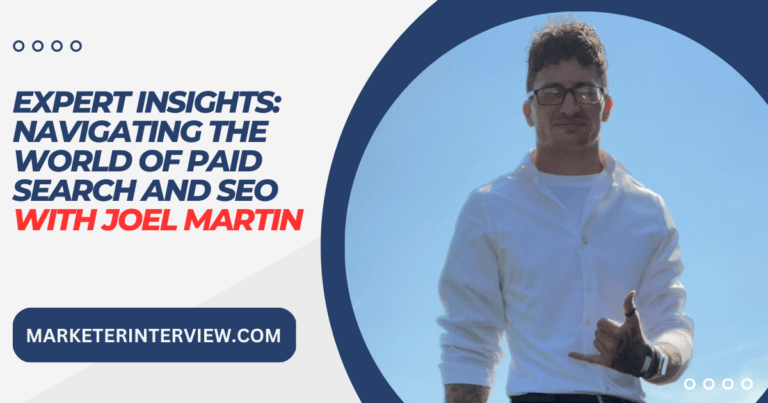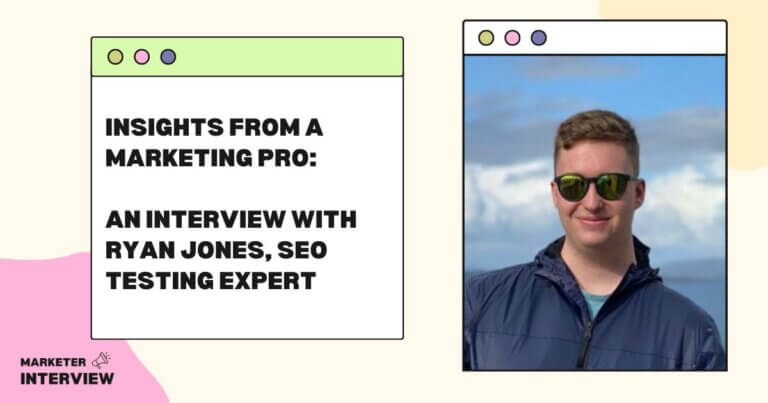Boosting Your Online Presence: An Interview with Julien Vidal
We speak to Julien Vidal (LinkedIn), a seasoned marketer who left the corporate world to start his own business helping small and medium-sized enterprises grow their online presence and generate more leads.
With almost 20 years of experience in national and international companies, Julien is an SEO, SEA, web analytics, and lead generation expert.
In this interview, he shares his insights on international SEO and how he got to where he is today.
Let’s dive in!
Contents
- 1 Can you tell us about your marketing journey, specifically international SEO?
- 2 What are your biggest challenges regarding international SEO?
- 3 How do you approach developing an international SEO strategy for a new client?
- 4 Can you share a success story of a client you worked with?
- 5 What are some common misconceptions people have about international SEO?
- 6 How do you stay current with the latest trends and changes in international SEO?
- 7 Can you talk about any tools or software you use as a digital marketing consultant?
- 8 How do you measure the success of an international SEO campaign?
- 9 What advice are you for businesses looking to expand their online presence internationally?
- 10 What do you see as the future of international SEO, and how do you think it will evolve in the coming years?
Can you tell us about your marketing journey, specifically international SEO?
I finished my studies in 2001. After that, I started my career as an industrial designer. After spending several months in a design office, I quickly became interested in the Internet.
A situation that might seem strange today, but at that time, having the internet at home was not a common thing.
I have spent some weekends at the office researching and studying the different ways to make a living online.
A friend told me about a website project already working very well in several countries. The idea was to federate a community around nightlife, propose an agenda of parties and festivals, and a platform to exchange photos taken during the different events.
I decided to join his project, and I took care of the acquisition part. It was my first step in the world of SEO.
Knowing that the platform was already present in many countries, I quickly became interested in international SEO and the different strategies to implement for an influential search engine ranking.
I was able to help the headquarters establish the site internationally and gained a lot of experience in platform management and SEO strategy in many countries.
What are your biggest challenges regarding international SEO?
One of the recurring problems is undeniably having the right pages indexed in the “right” search engine. For example, without a real strategy, we can quickly have pages intended for the UK market index in the US.
Similarly, some pages intended for the German market may cannibalize content initially intended for the Swiss market (where German is a national language).
Also, it is sometimes complicated to manage the indexation of a site’s content designed for a country with several official languages (e.g., Canada, Switzerland, Belgium, or Luxembourg).
To avoid these recurring problems, three essential elements must be implemented.
- First of all, you have to make sure that each page has a hreflang tag. It allows you to define the country and the language for which the page is intended. Therefore, we can quickly establish content for the US and slightly different content for the UK without generating duplicate content.
- Setting up a dedicated structure for each page and language is a good practice. We can put in the path, the country, and the language for more clarity when evaluating the structure of a whole site for the crawlers. (/ch/fr/ for French Switzerland and /fr/fr/ for France)
- Finally, the content must be localized as much as possible, including using the official vocabulary of the targeted country, considering the different linguistic nuances.
Search engines can now understand quite quickly if the page has a real added value for the targeted country or is just automatically translated content.
How do you approach developing an international SEO strategy for a new client?
First, the client must understand that an international SEO strategy requires much more than a simple page translation.
It is necessary to inventory the site’s structure, establish a strategy for the domain(s), and define if the site will be multilingual or/and multi-regional.
We define the target countries and evaluate the local competition and opportunities in terms of potential partners.
Finally, we establish a plan in terms of content, and we translate the different elements and templates of the site.
When targeting international markets, having a fully translated site is imperative. However, offering partially translated content could be a better signal, both for search engines and in terms of user experience.
Very often underestimated, maintaining a site in several languages requires a significant investment in content management. Each page must be translated into all the languages offered.
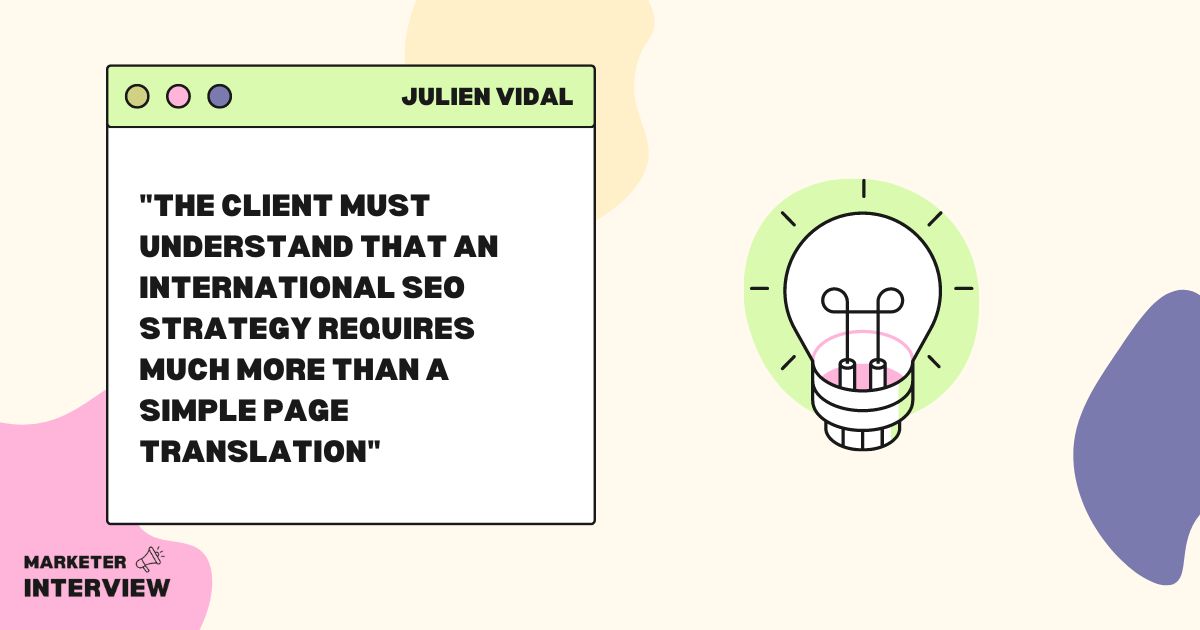
I developed my skills in terms of international SEO, mainly thanks to my various years of experience in the Swiss market.
Implementing a national SEO strategy is based on the same principles as an international SEO strategy.
An exciting project was to manage the SEO strategy when a direct competitor was acquired. The goal was to keep the same amount of organic traffic on both platforms despite the websites being based on the same content.
In addition, I have spent the last 5 years specializing in and establishing the international SEO strategy for a company present in 16 countries. This included a merging domain project.
To be transparent, the main objective of this kind of project is not to have a negative impact when we implement the structural changes of the different parts of the site.
It is always challenging to manage the migration of different versions of sites that generate a significant number of visits each month through organic traffic.
What are some common misconceptions people have about international SEO?
Companies that want to expand online internationally must pay more attention to the investment involved. They think that a simple translation of the site’s pages is sufficient.
You simply have to make a site’s content available in the targeted country’s language, and visits & conversions will automatically be generated.
I have seen sites that use a Google plugin to automatically translate the content of a page based on the user’s browser language.
A practice that can be interesting to facilitate the understanding of content, but it’s not a sustainable solution for an international SEO strategy.
It is common to see sites that only translate certain items without caring about the rest of the content, such as the terms of use, the menu, and important information about payment or delivery methods.
Finally, sites that have accessible translations with complex language parameters in URLs. Something that searches engine crawlers needs help understanding, especially if some # are used.
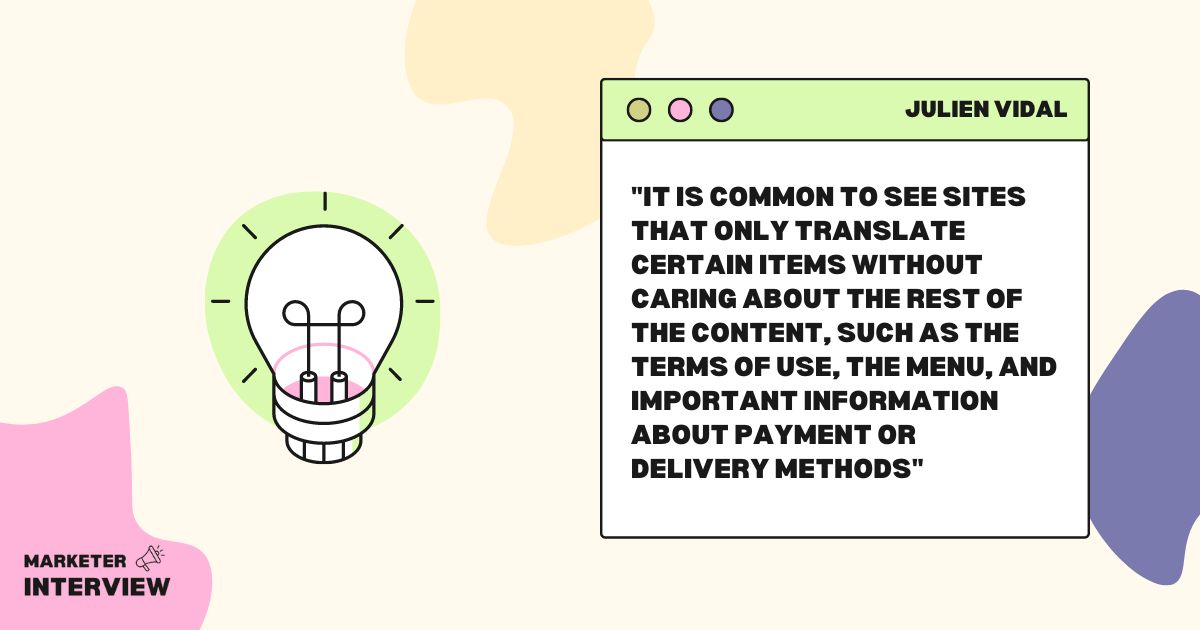
How do you stay current with the latest trends and changes in international SEO?
I have set up a 30-minute ritual every morning of the week. In addition, I’ve subscribed to the RSS feeds of about 60 blogs and sites related to SEO and digital marketing.
Here is a list of the best sources of information that allow you to stay current on the latest SEO trends: Search Engine Journal, SemRush Blog, Hubspot, Search Engine Land, OnCrawl, Moz, etc…
I use an application on my iPad (Feedly). It allows me to scan the news about the critical updates of the Google algorithm and have the latest trends in SEO in general.
Note that there are relatively few resources specializing in international SEO
Can you talk about any tools or software you use as a digital marketing consultant?
I’m using the Google Search Console. It’s a free tool providing many insights regarding indexation issues, backlinks, and keywords to target.
The second one is SEMrush. I use it for keyword research, competition analysis, and website audit.
Regarding Technical SEO, ScreamingFrog is the best crawling tool for me. With one scan, we can quickly see the elements that need improvements and the structure of a complex website.
Finally, to support me in producing content, I like Surfer SEO. Based on Artificial Intelligence, the tools can quickly provide helpful insights concerning keywords’ density, text length, and content structure.
How do you measure the success of an international SEO campaign?
Establishing a site in a new country requires a lot of investment. Patience is key.
It is not easy to go and look for positions in a new market where some websites have been established for many years.
Nevertheless, a fundamental element for me is not necessarily the average position of a site in the search results but rather the organic traffic generated.
During my experiences with different agencies specializing in SEO, I have seen guarantees to be on the first page of a search engine for a targeted keyword.
From position 5, the added value is minimal, and traffic is sometimes even non-existent.
I prefer to establish a topic cluster and create pages around it to measure the traffic generated on the site. This is a sign and the consequence of a good position in search engines.
What advice are you for businesses looking to expand their online presence internationally?
Most businesses with E-commerce in place can claim to develop their activity internationally.
Nevertheless, we must understand the magnitude of the task.
Before launching the translation of a site, which is, for me, the final element, it is necessary to make a precise analysis of the target market:
- Local competition
- Popular payment methods
- The current structure of the site
- Partnership opportunities
- Local keywords to target
- Legislation in terms of personal data collection, which may differ from one country to another.
I advise using an agency or a consultant specialized in this kind of project to avoid additional and unexpected costs.
What do you see as the future of international SEO, and how do you think it will evolve in the coming years?
International SEO for a company already established in a country is a perfect opportunity.
Artificial intelligence (properly used) can facilitate this development.
We can quickly use programmatic SEO strategies to generate pages that respond precisely to users’ search intentions. And this, for each targeted country.
This allows us to offer lists of products or services tailored to specific users’ specific needs.
Also, the creation of personalized descriptions for each product is greatly simplified.
However, the (human) Experience with the targeted topic will become much more important because, again, informative content can be generated much more easily thanks to AI.
Transparency in the eyes of search engines and users is the element in which companies must invest a maximum.
Working on the pages related to the presentation of the company and the teams, but also informing on the quality of the services or the products, thanks to recommendations of customers or partners, becomes critical.
